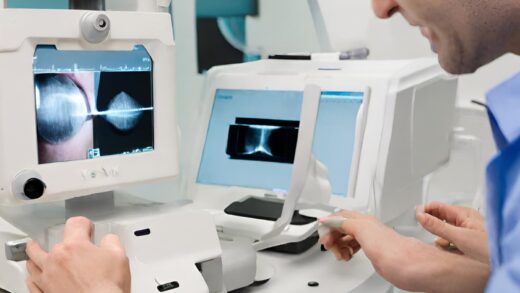In the world of vision correction, LASIK has long held the spotlight as a popular and effective procedure for improving eyesight. However, LASIK is not the only solution available, and it may not be suitable for everyone. In this comprehensive guide, we will explore alternative vision correction options beyond LASIK. Whether you’re seeking a procedure tailored to your unique needs or you’re exploring options for specific eye conditions, including ICL eye surgery, read on to discover the possibilities.
Understanding LASIK
LASIK, short for Laser-Assisted In Situ Keratomileusis, is a surgical procedure designed to correct common vision problems like nearsightedness, farsightedness, and astigmatism. The procedure involves reshaping the cornea, the transparent front part of the eye, to improve its ability to focus light onto the retina. LASIK is renowned for its speed, effectiveness, and minimal discomfort during and after the surgery.
Why LASIK May Not Be Suitable for Everyone
While LASIK has transformed the lives of countless individuals, it may not be the right choice for everyone. Some factors that could make LASIK less suitable include:
Thin Corneas: LASIK requires a minimum corneal thickness for safe and effective results. Individuals with exceptionally thin corneas may not qualify for LASIK.
Severe Refractive Errors: In cases of extremely high refractive errors, LASIK may not provide the desired outcome, and alternative options may be more appropriate.
Certain Eye Conditions: Conditions such as cataracts or severe dry eye syndrome can affect LASIK candidacy.
Exploring Alternative Vision Correction Options
Photorefractive Keratectomy (PRK): Photorefractive Keratectomy (PRK) is a laser-based vision correction procedure similar to LASIK but with a few key differences. In PRK, instead of creating a corneal flap, the outer layer of the cornea, called the epithelium, is removed. This allows the laser to reshape the cornea directly.
Advantages of PRK:
- Suitable for individuals with thin corneas.
- Minimizes the risk of flap-related complications.
- Effective in correcting myopia (nearsightedness), hyperopia (farsightedness), and astigmatism.
- Considerations for PRK:
- Slightly longer recovery time compared to LASIK.
- Potential for mild discomfort during the initial healing period.
Laser Epithelial Keratomileusis (LASEK)
Laser Epithelial Keratomileusis (LASEK) is another laser-based vision correction procedure that combines elements of both PRK and LASIK. Like PRK, LASEK involves the removal of the epithelium, but it is preserved, treated, and then replaced after the laser reshaping.
Advantages of LASEK:
- Suitable for individuals with thin corneas.
- Reduced risk of flap-related complications.
- Effective for correcting a range of refractive errors.
- Considerations for LASEK:
- Longer recovery time compared to LASIK.
- Possible discomfort during the healing process.
Implantable Contact Lenses (ICL)
Implantable Contact Lenses (ICL) offer an alternative to traditional contact lenses. These lenses are surgically implanted in front of the natural lens of the eye and can effectively correct a wide range of refractive errors.
Advantages of ICL:
- Suitable for individuals with severe refractive errors.
- Provides excellent visual quality.
- Reversible procedure.
- Considerations for ICL:
- Requires a surgical procedure.
- May not be suitable for individuals with certain eye conditions.
Refractive Lens Exchange (RLE)
Refractive Lens Exchange (RLE) is a vision correction procedure often used for individuals with presbyopia, cataracts, or those seeking a lens-based solution for refractive errors. During RLE, the eye’s natural lens is replaced with an artificial intraocular lens (IOL).
Advantages of RLE:
- Corrects a wide range of refractive errors, including presbyopia.
- Reduces the risk of cataract development in the future.
- Provides stable and predictable visual outcomes.
Considerations for RLE:
- Surgical procedure involving lens replacement.
- May not be suitable for individuals with specific eye conditions.
The Importance of a Consultation
Before considering any vision correction procedure, it is crucial to consult with an experienced eye specialist. An eye specialist can assess your individual eye health, refractive error, and other factors to determine the most suitable vision correction option for you.
Benefits and Drawbacks of Each Alternative
To make an informed decision about vision correction, it’s essential to consider the benefits and drawbacks of each alternative option. Below, we provide a brief overview of these factors.
PRK and LASEK offer advantages such as suitability for thin corneas and a reduced risk of flap-related complications. However, they may involve a slightly longer recovery period and some initial discomfort.
ICL is a reversible procedure suitable for individuals with severe refractive errors. It provides excellent visual quality but requires a surgical implantation.
RLE is an effective solution for presbyopia and other refractive errors. It reduces the risk of future cataracts but involves lens replacement surgery.
Factors to Consider Before Making a Decision
When considering alternative vision correction options, several factors should be weighed:
Refractive Error: Your specific refractive error, such as myopia, hyperopia, or astigmatism, will influence the suitability of each procedure.
Corneal Thickness: Thin corneas may limit LASIK candidacy but could still be suitable for PRK or LASEK.
Eye Health: Existing eye conditions, such as cataracts or dry eye syndrome, may influence your choice of procedure.
Age: Age can affect refractive errors, particularly presbyopia, which may impact the choice of procedure.
Lifestyle: Consider your daily activities, such as sports or outdoor pursuits, and how they may influence your choice of vision correction.
Conclusion
While LASIK remains a popular and effective vision correction option for many, it’s essential to recognize that it may not be suitable for everyone. Fortunately, alternative vision correction options exist, each with its own set of advantages and considerations.
Whether you opt for PRK, LASEK, ICL, RLE, or another procedure, the key is to consult with a qualified eye specialist who can evaluate your unique needs and provide personalized recommendations.
If you’re seeking expert guidance on vision correction, consider LASIK surgery Kansas city. Remember, the journey to clearer vision begins with a consultation and a thorough assessment of your eye health and refractive error.
Make an informed decision, explore your options, and take the first step toward improved vision and a brighter future. Your path to better vision is closer than you think.


